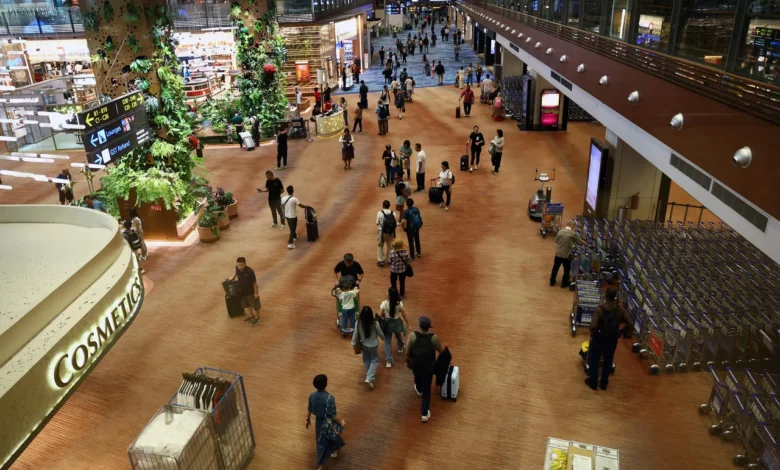Singapore top recipient of Q1 cross-border investments in Apac: Knight Frank

DESPITE a decline in cross-border activities for the entire Asia-Pacific region, overseas investors remained interested in Singapore in the first quarter of 2024.
At 45.6 per cent, the Republic received the highest proportion of overseas capital among Apac markets in the quarter, based on an analysis by Knight Frank’s Apac research team that was released on Friday (May 3).
Institutional investors led the inflow, especially in the hospitality sector. They accounted for six of the 11 buyers, or US$906 million in transactions.
“The resurgence of the tourism industry and increased acquisition activity in Singapore’s hospitality market further stimulated investors’ interest in hospitality assets,” said Knight Frank. The research team noted that tourism demand was driven strongly by the meetings, incentives, conventions and exhibitions sector, as well as the China-Singapore mutual visa exemption arrangement.
Christine Li, head of research for Apac at Knight Frank, noted a 29 per cent quarterly decline in cross-border activities across the region, and that Singapore bucked this trend.
“The market is ripe for increased investment activity, as investors are particularly drawn to value-added opportunities, signalling potential growth and development within this sector,” she said. She also highlighted the importance of strategic partnerships between investors and developers to enhance existing assets and unlock value via repositioning.
A NEWSLETTER FOR YOU

Property Insights
Get an exclusive analysis of real estate and property news in Singapore and beyond.
Meanwhile, South Korea and Japan attracted renewed commercial investment interest in Q1, particularly in the office sector. Investment volume in South Korea rose 12.5 per cent on the quarter and 180 per cent on the year to US$5.8 billion. Of this, office deals made up 64.7 per cent.
Hospitality assets in South Korea also attracted more funds from institutional investors. The US$850 million investment into the sector represented a 234.7 per cent increase from the fourth quarter of 2023, and a 44-fold year-on-year expansion.
Neil Brookes, global head of capital markets at Knight Frank, highlighted the re-emergence of domestic institutional investors in South Korea, whose influence may be tempered by the challenge of negative leverage. “Simultaneously, foreign investors are maintaining a cautious approach, awaiting price adjustments before actively pursuing transactions,” he said. He added that discrepancies in pricing expectations could delay deal closures, and market activities were likely to be slow until substantial interest rate and liquidity improvements became evident.
In Japan, despite an overall contraction in real estate investment volume, office transactions doubled from the previous quarter. They also accounted for nearly half of the total investment volume for the quarter. “Investors are motivated by the positive momentum anticipated for the office sector, underpinned by consistent occupier demand,” said the Knight Frank research team.
Brookes does not expect the overall investment climate in Japan to change drastically. He said the steady inflow of capital into the real estate sector is likely to continue, despite the Bank of Japan’s recent decision to raise short-term interest rates. “However, if long-term interest rates experience further hikes, investors might demand higher capitalisation rates in sectors such as office, facing stagnant market rents,” he noted. “This could lead to a widening gap between sellers’ asking prices and buyers’ offers, potentially hindering transaction (volumes) and affecting overall market liquidity.”
As the fluctuation in the yen’s value could encourage cross-border investments, he added, strategic investment approaches and partnerships will be critical for capitalising on market opportunities.





